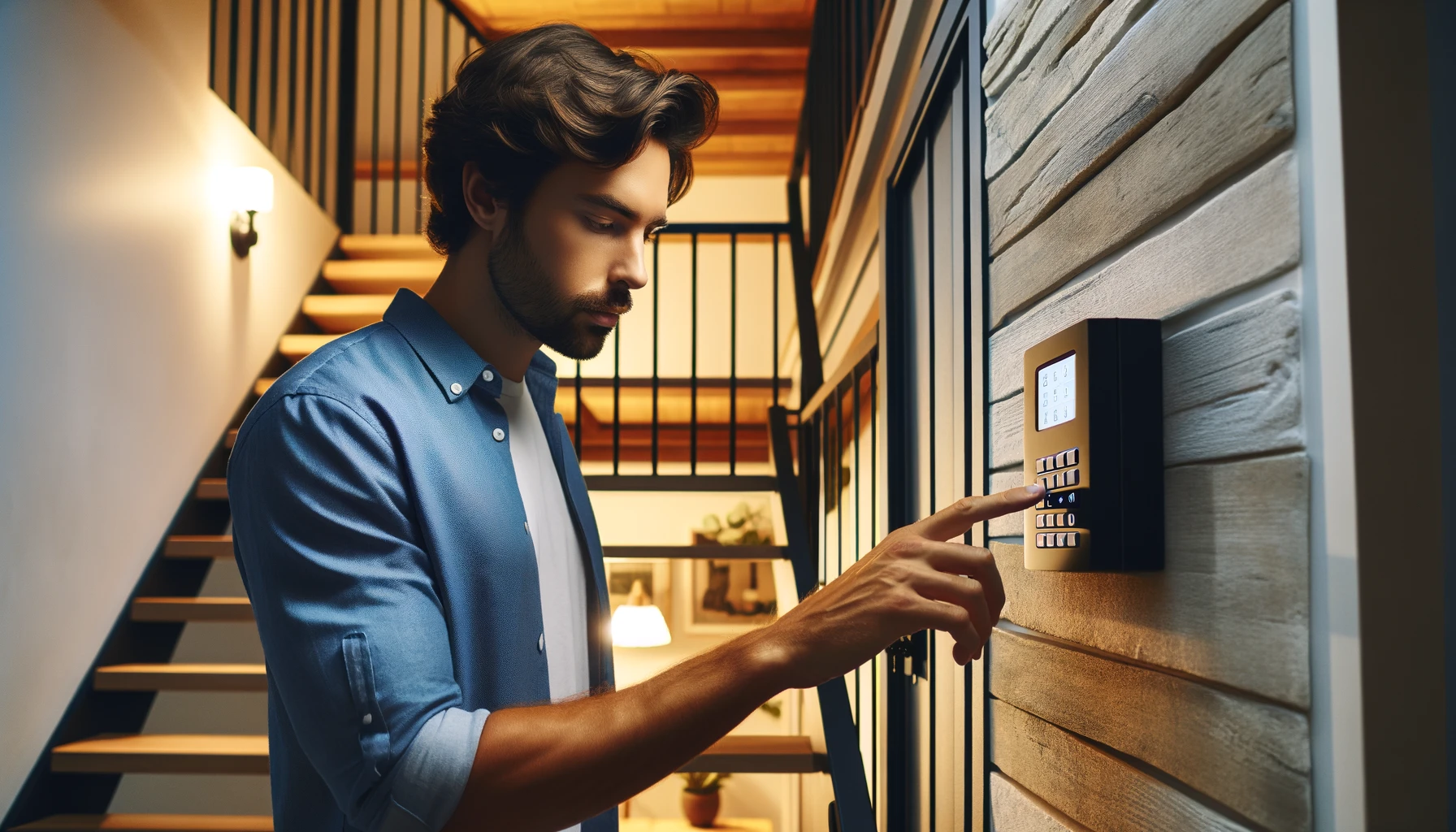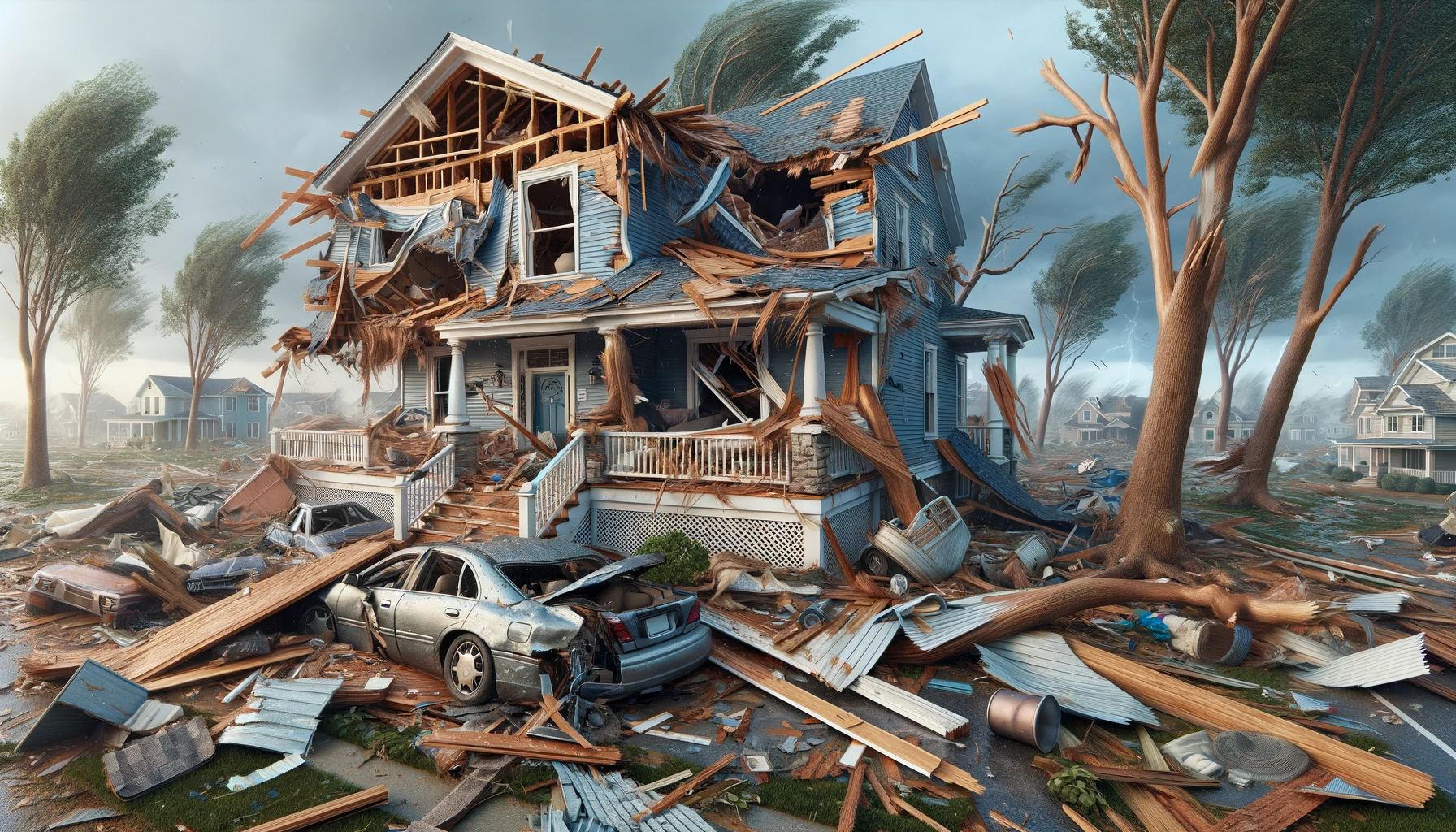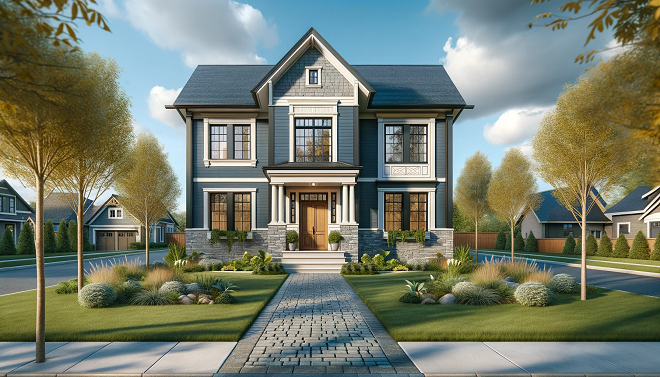Roofing replacement you can trust!
7 Surprising Factors That Can Influence Your Home Insurance Rates: Advice from the Experts
Understanding what determines your premium is crucial when safeguarding your home and possessions. In this guide, we'll delve into lesser-known factors, discuss the role of location, highlight some unconventional considerations, emphasize the significance of safety and protective features, explore the implications of replacement cost, and offer expert tips to save on home insurance.
KEY TAKEAWAYS
- Adding a swimming pool or trampoline might raise your home insurance premiums due to increased risk.
- Installing a security system or upgrading your plumbing and electrical infrastructure can potentially lower your rates.
- The state of your roof plays a crucial role in determining your insurance premiums.
Welcome to Sears Home Services, your go-to source for expert advice on the 7 surprising factors that can impact your home insurance rates.
By the end of this article, you'll have a comprehensive understanding of what affects your home insurance rates and how to make savvy decisions to safeguard your investment.
Little-Known Factors That Can Influence Your Rates
Several surprising elements can significantly affect your home insurance rates. Grasping these factors can empower you to make knowledgeable decisions, possibly leading to savings on your premiums. Here are three factors you might not be aware of:
- How home improvements can affect your rates: Did you realize that specific home improvements can influence your insurance rates? For instance, adding a pool or installing a new roof might raise your premiums due to increased risk. Conversely, installing a security system or upgrading your plumbing and electrical infrastructure can potentially lower your rates.
- The role of your credit history: Your credit history affects many facets of your financial life, including your home insurance rates. Insurance companies often use credit-based insurance scores to determine risk. A good credit score can help you secure lower premiums, while a poor credit history may result in higher rates.
- The unexpected influence of your claims history: Your claims history can also affect your home insurance rates. If you have a history of frequent or costly claims, insurers might view you as a higher risk and charge higher premiums. Conversely, a claims-free history or minimal claims can make you eligible for discounts.
Understanding these factors and their potential impact on your home insurance rates can help you mitigate risks and potentially save money. It's always wise to regularly review your policy and discuss any changes or concerns with your insurance provider.
Location Matters
Your location plays a significant role in determining your home insurance rates. This aspect can influence the cost of your insurance in several ways.
Your ZIP code is a critical factor in determining your insurance rates. Insurance companies use data on claims and losses in different areas to assess the risk associated with insuring homes in specific locations. If your ZIP code has a high frequency of claims or losses, you might face higher insurance premiums.
Another location-related factor is proximity to fire stations or hydrants. Insurance companies consider the availability of fire protection services when assessing the risk of fire-related damages to your home. Living closer to a fire station or hydrant can reduce the response time in case of a fire, potentially resulting in lower insurance premiums.
Lastly, local crime rates can affect your insurance costs. Areas with higher crime rates are more prone to theft, vandalism, and other property crimes. Insurance companies account for this when setting your rates. If you reside in an area with high crime rates, you might face higher insurance premiums due to the increased risk.

Uncommon Factors to Consider
There are several unexpected factors that can affect your home insurance rates. While most homeowners are aware of typical factors such as location and home security, there are some less obvious elements that insurance companies consider. Here's a closer look at three uncommon factors.
1. Your Dog's Breed Can Affect Your Rates
Surprisingly, your dog's breed can impact your home insurance rates. Some breeds are considered riskier by insurance companies due to their potential for aggressive behavior. If you own a dog breed labeled as high-risk, you may have to pay higher premiums or even face coverage restrictions. Always disclose your dog's breed when obtaining home insurance quotes to ensure accurate pricing.
2. The Condition of Your Roof Matters
The state of your roof plays a crucial role in determining your insurance premiums. An old or poorly maintained roof can increase the risk of damage to your home, leading to higher insurance rates. In contrast, a well-maintained roof can reduce the likelihood of claims and therefore lower your premiums. Regular roof inspections and maintenance can help save money on your home insurance. When you need to replace your roof, schedule a free consultation with our Sears Home Services roofing experts to get your project started.
3. The Age of Your Home Can Influence Your Insurance Costs
The age of your home can also affect your insurance costs. Older homes may have outdated electrical systems, plumbing, or structural issues that pose higher risks for insurance companies, resulting in higher premiums. Upgrading these systems and making necessary repairs can help mitigate the risk and potentially lower your insurance rates.
Understanding these less obvious factors can help you make informed decisions about your home insurance. By addressing these issues, you could potentially reduce your insurance costs and ensure adequate coverage for your home and belongings.

The Importance of Safety and Protective Features
One important aspect to consider when it comes to home insurance rates is the presence of safety and protective features in your home. Insurance providers often consider the level of security and safety measures in place when determining your premiums. Let's examine three key factors:
- Home Security Systems Can Reduce Rates: Installing a home security system can significantly lower your insurance premiums. These systems deter potential burglars and add an extra layer of protection for your home. Insurance companies recognize the reduced risk associated with homes equipped with security systems and offer discounts as a result.
- Smoke Detectors Can Lower Premiums: Smoke detectors are essential safety devices that can protect your property from fire damage. Insurance providers often offer discounts for homes equipped with functioning smoke detectors. These devices provide early warnings, help minimize the impact of a fire, and reduce the risk of costly insurance claims.
- The Presence of a Swimming Pool or Trampoline Can Affect Insurance Costs: While swimming pools and trampolines can provide hours of family fun, they can also raise your insurance rates. Insurance companies view these features as potential liabilities due to the associated risks of accidents and injuries. Implementing safety measures such as pool fences or trampoline enclosures can mitigate these risks and potentially reduce your insurance premiums.
Understanding how safety and protective features can affect your home insurance rates can empower you to make informed decisions that could lower your premiums. Installing a home security system, ensuring functional smoke detectors, and taking precautions with swimming pools and trampolines can contribute to a safer home and potentially lower insurance costs.

The Impact of Replacement Cost
One of the key factors determining your home insurance rates is the replacement cost of your home. Insurance companies consider the cost of rebuilding or repairing your home following a covered loss. The higher the replacement cost, the higher your insurance rates are likely to be.
Why does the replacement cost matter? It's simple. If your home is more expensive to rebuild or repair, the insurance company will have to pay a larger sum in the event of a claim. Therefore, they charge higher premiums to offset this potential cost.
Your policy deductible also plays a role in determining your insurance rates. The deductible is the amount you agree to pay out of pocket before your insurance coverage kicks in. Generally, the higher your deductible, the lower your premiums. This is because you're assuming more of the financial risk in the event of a claim.
Lastly, if your home appreciates in value over time, your insurance rates may increase. A higher home value means a higher replacement cost, which can lead to higher premiums.
Expert Advice to Save on Home Insurance
When it comes to home insurance, finding ways to save on premiums without sacrificing coverage is essential. Here are some expert tips to help you lower your rates:
- Maintain a good credit score: Your credit score can affect your home insurance rates. Insurance companies often view your credit history as a reflection of your financial responsibility. By maintaining a good credit score, you may be eligible for lower premiums.
- Increase your deductible: Raising your deductible is one way to lower your premiums. This means you'll pay more out of pocket in the event of a claim, but it can significantly reduce your monthly premium.
- Install safety features: Making your home safer can also lead to lower insurance rates. Consider installing smoke detectors, burglar alarms, and deadbolt locks to minimize the risk of fire or theft.
It's also important to shop around for competitive rates. Insurance companies offer different rates based on various factors, such as your location, the age of your home, and your claims history. By getting quotes from multiple providers, you can compare rates and choose the one that offers the best value.
Finally, bundling your home and auto insurance can save you money. Many insurance companies offer discounts if you purchase both policies from them. By bundling your insurance, you can enjoy convenience and potential cost savings.
Roofing replacement you can trust!
Sears Home Services offers roofing that provides lasting durability and improves the look of your home. Schedule an appointment with a roofing expert now.
Was this information helpful?
Improve Roofing Resources
Discover why summer is the best time for roof replacement with Sears Home Services, and how it can save you time and protect your home for seasons to come.
Choosing the Right Roof Color: Factors to Consider
Shield your home from climate change with our top-notch roofing and siding solutions. Find durable and weather-resistant options at Sears Home Services.
Protect your home from April showers by following roofing and gutter maintenance tips from Sears Home Services.
